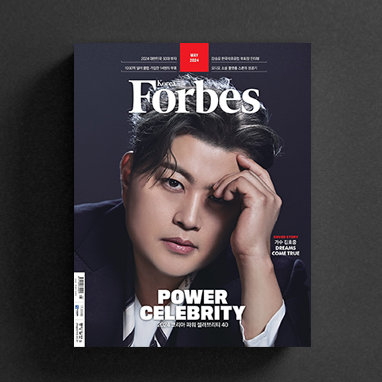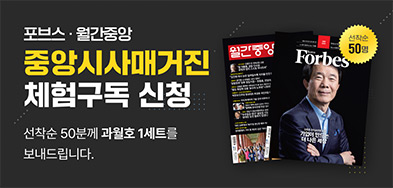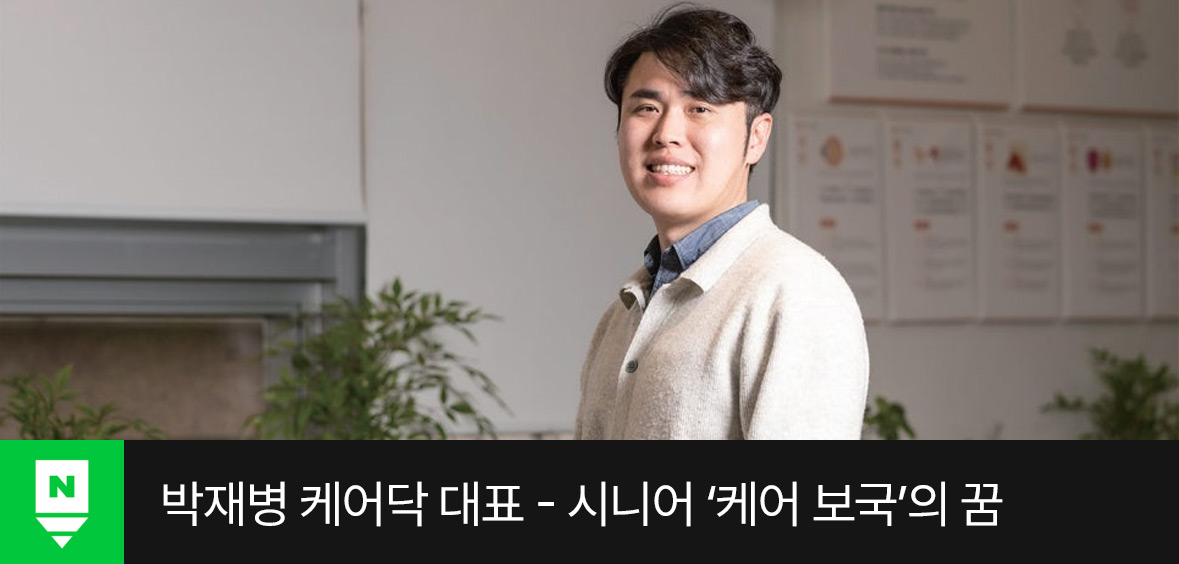Yul Kwon, once battling insecurities, OCD, and bullies, found the secret to success and self-growth: embracing fear. This is the story of his transformation to a top business leader in AI and product management, a champion for Asian American and Pacific Islanders (AAPI) in America, and living proof that you, too, can overcome anything and reach your goals by finding the courage to fail and get back up again.

▎Kwon's professional career spanned a variety of roles across technology, law, business, and government. Kwon's private sector business experience includes working in Google's business strategy group and as a management consultant with McKinsey & Company and The Trium Group. Kwon currently works at Google as a Vice President of Product Management. |
|
On paper, Yul Kwon (49) seemed to have accomplished the impossible with ease. The Stanford and Yale Law school graduate jumped from one dream job to another, working at Meta, Google, the FBI, the FCC, and McKinsey, getting promoted into senior roles. He even made a surprise move in 2006 when he quit Google to participate in the TV show Survivor: Cook Islands and won as the first Asian American sole survivor. He is now back at Google as the VP of Product Management in Silicon Valley, a senior role that few Asian Americans have, with only about six percent of senior leadership positions being held by Asians and Asian Americans in 2021, according to studies by the U.S. National Institute of Health. Behind Kwon’s successes is a man who grew up with many insecurities, anxieties, and failures. He was bullied for years, witnessed loved ones die unexpectedly, and his failed yogurt business put him and his family at a huge financial risk. How did he get to the top so often and against all odds? And what motivates him to take on new challenges in diverse fields despite the risks? His secret? He mastered the mindset of embracing failures and setbacks and found strength in sharing his stories as a thought leader.Kwon, now a sought-after public speaker, chuckles that his friends would be surprised to meet the shy, quiet, and anxious teenager version of himself. Kwon was also smart and diligent but experienced many challenges growing up as a Korean American in Flushing, New York. While Korean Americans still face a discriminatory environment today, being Korean in the 1970s had its distinct challenges. Back then, it meant navigating a world far less accepting of Korean culture and differences, now celebrated globally in mainstream media. He frequently experienced bullying, contributing to his OCD, sleep disorders, and severe health problems, which he experiences even today. He recalls vividly how older kids bullied young boys of color like him, even urinating on them after cornering them in the school bathroom. Kwon was scared he might be the next target and stopped going to the bathroom, which led to problems like shy bladder syndrome. “I developed a lot of social anxieties where anytime I felt like people were looking at me, I would often break out into a cold sweat. It was literally soaked in my clothes. And that would cause tremendous embarrassment,” Kwon said.It didn’t help that even though he admired his parents, he never felt like he could share his feelings or worries. The family, like many Asian American immigrants, was struggling financially, which put Kwon and his siblings under extreme pressure to succeed.“Kids are often held to a standard that is often impossible to meet. And there’s a lot of stress, especially in Korean-American communities,” Kwon said. “There’s so much pressure to do well in school. If you don’t meet that standard, there’s not a lot of forgiveness or understanding.”As living in fear and anxiety became a norm for Kwon, he had a shrilling wake-up call when he learned his brother’s friend unexpectedly committed suicide. He realized how important it is for him to learn urgently how to overcome his fears before he does something he’ll regret too.“When I first heard the story, I was shocked, but then again, I wasn’t. Because I too had felt those moments of ‘what is the point of all of this?’ so many times being bullied. That thought scared me and I wanted to do something about it,” said Kwon.His drive to break the cycle of living in fear helped him identify three key elements of resilience that helped him build his confidence and courage to be the leader and person he is today: Learn how to take small steps toward change, find structured environments where everyone is encouraged to take risks together, and repeatedly put yourself in new environments to grow. When the changes are small, and the consequences feel less daunting initially, we are more willing to try to reap the benefits. And just as important is pushing myself to enter spaces that challenge you, including structured ones, such as drama classes in school in Kwon’s case, or leaping into new environments. This is why, over time, Kwon pursued science, technology, AI, public policy, law, and entertainment throughout his career; it was his way of trying something new each time to strengthen his resilience.Still taking on these three steps is one thing; it’s another to determine what risk scale you want to take them into, and Kwon was willing to go all in. Participating in The Survivor Show was an example of Kwon taking a big step in his life. Not just because he was quitting his comfortable job at Google but more because he experiences social anxiety and fears with people observing him. It’s not the first step most people would take to overcome fear, but Kwon knew himself.“I was terrified but I realized if I went through it, I would grow and become a better version of myself. So, all these things I did were not to be successful in a conventional sense but more because I wanted to live a normal life not driven by fears and anxieties,” he said.He also had an additional motive: to break the tired, model minority stereotype in mainstream media that presents Asians as weak, shy, and unattractive nerds who lack social skills. It felt like an improvement having AAPI representation on screen, but Kwon worked to challenge any “characterizations” or assumptions that would be placed on him. He exercised extensively before the show and sought opportunities to break his TV producers' perception of him as a “shy Asian character” in the show. His efforts paid off by winning and channeling how Asian American men can be smart, diligent, collaborative, charismatic, and creative. He continued to break stereotypes when, in 2007, People’s Magazine listed Kwon as one of the Sexiest Men Alive and Most Eligible Bachelor. He has also repeatedly ranked as one of the top Survivor contestants, including fan favorites.

▎A scene from the TV show [Survivor: Cook Islands] |
|
Upon winning the show, Kwon wanted to use his “15 minutes of fame” to make a positive difference. He amplified Asian Americans in the workplace facing the bamboo ceiling, built nonprofits like the Council of Korean Americans to facilitate Korean American community development, and supported other nonprofits, such as getting more Asian Americans to register to become bone marrow donors, a personal investment having lost a friend who wasn’t able to secure a donor. Kwon understands deeply how every stage and visibility is earned and shouldn’t be taken for granted.Then, at the height of his success, Kwon faced a low moment that taught him a powerful lesson: don’t take your success for granted. Given Kwon’s earlier success, he wasn’t expecting to need to reinvent himself in his late thirties, but that’s exactly what his failure after three years at frozen yogurt company, Red Mango led him to. Following his journey from Survivor and wanting to stay healthy, he fell in love with frozen yogurt brands like Red Mango and Pink Berry, which provided healthier sweets. He dove into the opportunity to launch and operate five new stores in the Bay Area in 2007. Everything seemed to be going well until it didn’t. With popularity came competition, and with the financial crisis 2008, consumers' spending dropped.“I remember there were three competitors within a three-block radius at one point, and there just wasn’t enough demand to meet all that supply,” he said. “The stores were losing all the money I invested and raised, and what was hard was that I had to tell all of our investors, mostly friends and family, that we were losing money. I signed personal guarantees, and that ended up being a horrendous mistake. There was a good one or two years where I woke up everyday thinking today is the day I will have to quit and file bankruptcy.”It was painful to be here after all the big success he had gotten from Survivor, and the financial pressure hit home since he was no longer single and a father with a wife and two children. Having more to lose made him realize how important it is to continue to reinvent himself, but not without a long-term safety net that would put everyone at risk. “I felt like I failed my obligation to provide for my family and put them in jeopardy. That was a really dark time. I felt like a complete failure.”As tough as dark moments can be, the lessons you gain become invaluable if you can overcome them. As Kwon returned to AI and technology, he realized how important it was to acknowledge that, especially as a leader, you can’t be good at everything, and that’s okay. Knowing your strengths and weaknesses and finding a different way to hone what you can do well uniquely is more important than trying to be perfect at everything.“I realized I wasn’t the best entrepreneur. But I learned that building a brick-and-mortar store felt magical. You build a product that people are literally consuming in front of you. I loved making people happy and seeing them come together as a community,” he said. “But running a business was very difficult, even when I had a law degree, access to capital, and some marketing support. It makes me appreciate what small business owners do and how they grind. I still want to do something to help people and realize the only way I can do that in scale is through technology. That’s why I returned.”Kwon did get back up and successfully returned to Meta and Google, where he merged his expertise in AI, public policy, and law. He is also active as a Board of Advisor to many nonprofits and is often sought out as a spokesman on AAPI affairs, especially as recent hate crimes for Asian Americans have risen since the pandemic. He shares these stories to remind himself and others how not to take these moments in life for granted.“I had a friend who told me how life is like a series of chapters of books, and I hope to fill my life with as many different chapters. While starving on the island for the Survivor show, surrounded by crazy people, I remember thinking how lucky I am to have the life I have. When I returned home, I wanted to do my best to hold on to this and realize how grateful I should be,” Kwon said.Kwon’s source of gratitude and humility is perhaps one of his greatest gifts as a leader who dares to test new boundaries for positive societal impact. His brave choice to speak openly of his challenges and successes will help many leaders rethink what we can do daily to make a difference.“I think everyone should remember that they have agency over their own life,” he said. “No matter where you start, no matter where you are right now, there's always the opportunity to improve, to grow, to be a better person, to have a better life. But it does require intentionality. It does require effort. And I've been surprised at how much I've been able to evolve and change, even though I'm still the same person at the heart.”And remember his drive to overcome his cycle of failure? He realized that one can’t truly get rid of one's fears, but experience helps you find the courage to learn how to overcome them.“I found this process of trying to push myself allowed me to be effective and successful in others, including my career,” Kwon said. “This growth mentality of always feeling like you could be a better version of yourself was the kind of key learning that allowed me to change from being a scared little kid to someone who still is scared but has learned how to grow and deal with and have a life that I’m proud of and happy with.”He opens the curtain on his vulnerabilities, not to dwell on them but to ignite a spark in others. He wants future and current leaders to see that it's okay to stumble and to feel the sting of anxiety because what truly matters is the resilience to rise again, stronger and wiser.
Monica H. Kang, Founder and CEO of InnovatorsBox and Author of Rethink Creativity, is a leadership coach transforming today’s workforce with innovation. She helps companies worldwide rethink culture, leadership, and team development by making creativity practical and relatable regardless of industry or job title. Before InnovatorsBox, Monica was a nuclear nonproliferation policy expert. She holds an M.A. from SAIS Johns Hopkins University in Strategic Studies and International Economics and a B.A. from Boston University.














